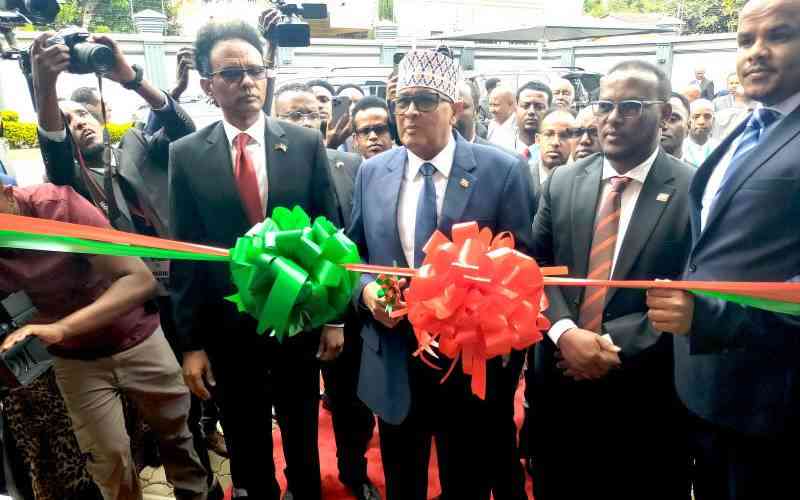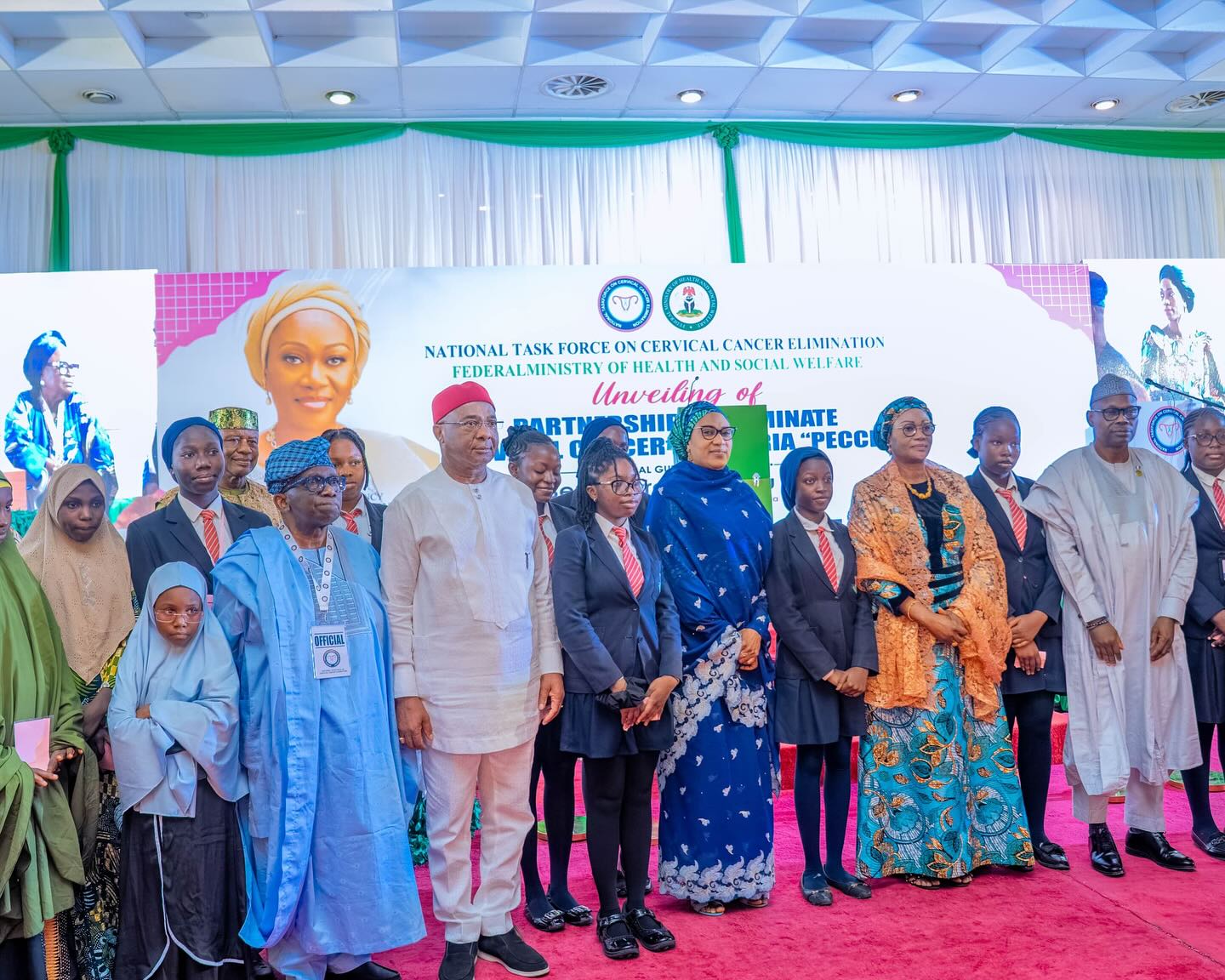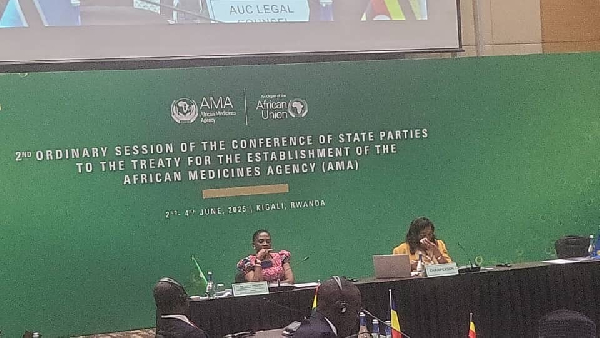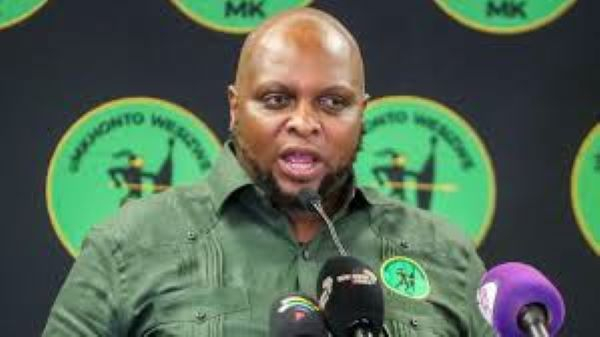The UK's new Approach to Africa: summary of consultation, June 2025 - GOV.UK
1. The UK Government is committed to a new relationship between the UK and Africa, one based on genuine partnerships, rooted in mutual respect, and reflecting how Africa, the UK and the world have changed.
2. In November 2024, the Foreign Secretary launched a five-month consultation to hear views from the UK’s African partners on the relationship with the UK.
3. In the period from November 2024 to May 2025, 51 UK High Commissions and Embassies conducted in-country consultations - 40 in Africa and 11 in other countries. These included discussions with 47 national governments and 25 multilateral institutions and UN agencies. The in-country consultations were supported by 25 UK ministerial visits.
4. In the UK, we consulted over 90 civil society organisations; academics and experts from over 70 universities and think tanks; 60 British and African businesses including 10 from the creative industries; and 35 diaspora organisations.
5. The Foreign Secretary and FCDO Ministers would like to record their immense gratitude to those who contributed their time and ideas to the consultation.
6. The response to the consultation was overwhelmingly positive. A common theme across responses was to welcome the UK’s new emphasis on listening, respect, and equality as values underpinning our new approach to partnerships.
7. The consultation has deepened our understanding of what African partners value from the UK. They want to work with the UK on issues ranging from trade to security to soft power. They want the UK to act in support of priorities set by Africans, such as the African Union’s Agenda 2063. At the same time, stakeholders repeatedly emphasised that the UK approach needs to adapt to country contexts. That a one-size-fits-all approach will not suffice for any continent, let alone one as diverse as Africa. Responses noted that as part of a new approach, the UK will need to be realistic about what we can and cannot do, avoiding spreading ourselves too thinly. And whatever we do, partners want us to communicate that clearly to ensure the UK’s offer is well understood.
8. We heard that the recent increase in ministerial and diplomatic engagement in Africa had been well received and, if sustained, would create the conditions for more enduring long-term partnerships. We also heard that priorities for joint work need to be set in partnership with African countries and stakeholders; co-creating work, not imposing external models – a “think with Africa, not do for Africa” approach. Similarly, evidence-based approaches, including local knowledge, need to be at the heart of how we work together.
9. Responses from African partners consistently highlighted the importance of economic growth that creates jobs and see a role for the UK to support this. Increased productivity, the creation of high-quality jobs, across a wider range of sectors, and moving to higher value manufacturing and services, are seen as critical to harnessing longer-term inclusive growth that can adapt to changes in commodity prices, terms of trade, and interest rates.
10. We heard a strong desire for countries to diversify their economies to secure more value from their natural resources. Those consulted specifically mentioned extractives industry, agriculture, and manufacturing as sectors which they wanted to further develop.
11. African partners want increased trade with countries like the UK and within the continent. They see exports as a key route to economic growth, and other African countries as key markets for those exports. Support for intra-African trade, particularly through the implementation of the African Continental Free Trade Agreement (AfCFTA), is therefore seen as a priority. Respondents appreciate UK support for African trade, such as the Developing Countries Trading Scheme, TradeMark Africa, and UK Export Finance.
12. There were many requests for more investment, including from the UK, into a wide range of sectors, including infrastructure, energy, agriculture, services, manufacturing, housing, telecoms, technology, education, health, creative industries, and critical minerals. UK investment is seen as high-quality and providing wider benefits such as jobs for local people, environmental protection, and transparency.
13. However, some responses indicated that UK companies are perceived as overly cautious and should be supported to manage risks in uncertain business environments. UK businesses raised similar concerns; although they are interested in increasing their footprint and investment in Africa, as a key future market, we heard that business environments are sometimes perceived as difficult to enter and relatively risky.
14. Some responses said that some of the barriers to investment and business activity originate from UK policy. For example, reported difficulties in obtaining visas to the UK to conduct business hindering stronger economic ties.
15. The consultation also revealed that African partners want specific changes to the international system. For example, they want more of a voice in international financial institutions, easier access to finance, and for the international system to better help them tackle unsustainable debt. Respondents see a role for the UK in supporting these objectives in international fora, such as the UN, including to address debt distress.
16. Many responses raised the importance of tackling gender inequality and enabling empowerment of women and other marginalised groups in the economy. Consultees said this would not only boost growth, but build important resilience to economic, climate, and security shocks. In particular, adolescent girls in Africa were noted as having the potential to transform the economic and social landscape.
17. Some responses made the case that increasing productivity in agriculture, organising informal workers, extending social protection, reducing punitive regulation, and supporting responsible business practices would improve both economic and social outcomes.
18. Overall, the UK’s economic offer is seen as strong, especially in sectors such as technology, education, financial services, and insurance, but smaller than many of our competitors. There is high regard for the quality of the UK government’s presence and spending within African countries, resulting in a perception of the UK being trusted as both a partner and convenor of other international partners.
19. However, there was uneven awareness of some UK initiatives, such as the Growth Gateway – which helps UK and African businesses to engage with each other – and Manufacturing Africa – a UK programme that supports the development of Africa’s manufacturing sector. Respondents suggested that we need to better coordinate and communicate the UK’s offer, including through trade visits and business summits. In addition, responses suggested the UK could make more of its strong people-to-people links, including our African diaspora, to increase mutually beneficial growth opportunities.
20. We heard that climate change presents a significant challenge for African partners. Challenges identified during the consultation included balancing food security with environmental conservation, improving energy access and infrastructure, and strengthening local adaptation capacity.
21. At the same time, the next few decades were seen to offer a substantial opportunity for Africa to capitalise on its extensive natural and human resources and lead the transition towards a sustainable and lower-carbon economy.
22. Access to finance to help address climate change is viewed as essential by many for the climate and nature transition in Africa. This covers both improving access to public finance and recognition that private investment is the only real route to meet the scale of needs. Most consultations took place before the announcement of UK and broader aid reductions. Those responses that addressed the reductions noted the increased need to target climate support to the poorest countries, communities and individuals.
23. The UK is recognised in responses for its political commitment to climate and nature, climate finance leadership, and technical expertise and innovation, including in areas such as early warning and access to capital markets. There were responses that asked whether UK efforts were sufficient and fully integrated across climate, peacebuilding, humanitarian and development activity, and whether UK funding is sufficiently long-term.
24. Some responses asked the UK to adopt country-specific approaches that recognised African countries’ needs and sovereignty and avoids perceptions of lecturing. Some commented that the UK’s positions on investment in fossil fuels (particularly gas), the Carbon Border Adjustment Mechanism, carbon markets and trophy hunting may not be fully in line with the new Africa Approach’s ambitions of partnerships rooted in mutual respect.
25. A common point made by those consulted is that African countries have a right to sovereignty and control of important decisions about their own security. It was recognised that the question of exactly who makes these decisions within African countries is complicated. For example, the case was made that many countries have large and growing, youth populations some of whom see the world differently to older generations.
26. Some responses pointed to a decline in the inclusion of women and girls in decisions about security at times when violence, sometimes including by those deployed to protect them, has significantly worsened.
27. Many responses saw the UK as a credible and valued security actor with international influence. They noted the UK’s international diplomacy as a specific strength and would like to see the UK use it in support of African security priorities, including in the prevention and resolution of conflict, making the case within the UN and wider international system.
28. Many of those consulted highlighted the links in Africa between insecurity, state fragility, and a lack of economic growth, pointing to the need for financial investment, including from International Financial Institutions (IFIs) such as the World Bank and the International Monetary Fund. Other responses pointed to poor governance and accountability as factors contributing to conflict.
29. The UK is seen by many as a long-standing source of expertise in defence and security. It was suggested that the UK should deepen defence engagement with African countries to support the development of key security capabilities such as counterterrorism, maritime security, strategic communications and human security.
30. The African Union (AU) and African Regional Economic Communities (RECs) – such as the Economic Community of West African States (ECOWAS), the Southern African Development Community (SADC), or the East African Community (EAC) – were understood by respondents as having a significant role in African peace and security. Although current fragmentation challenges were recognised, many responses suggested that the UK should take a longer-term view and continue to support the AU on peace and security, including on peace support operations.
31. Some of those consulted look to the UK as a source of continuity in a rapidly changing world. Many responses stressed the need for the UK to continue its support in Africa for upholding international humanitarian law, norms and rights relevant to security, and for support to civil society organisations focused on this work. Some of those consulted noted that women and girls suffer disproportionately in conflict in Africa, with rising levels of conflict-related sexual violence reported. It was also pointed out that the global reduction of aid to Africa could reduce the presence of civil society organisations which support human rights, inclusion and peacebuilding.
32. Many of those consulted, particularly civil society, highlighted the need to improve the performance and accountability of governments so that African societies could respond effectively to issues and opportunities.
33. Although public support for democracy is still strong among Africans, responses indicated that continued support partly depends on delivery by governments. The ability of governments to enact policies and deliver services is seen by some respondents as central to healthy democratic systems. Some responses maintained that decentralisation was the best way to improve service delivery.
34. Several of the responses noted that effective government requires financial systems that allow efficient tax collection and the allocation of those taxes to capable public services and that the UK has a credible offer on expertise in the management of public finances.
35. We heard that tackling illicit financial flows was a priority for some; referencing to figures suggesting levels of illicit finance leaving Africa each year are more than the inflows from Foreign Direct Investment (FDI) and foreign assistance combined.
36. Some responses pointed to strengthening accountability systems, including the conduct of effective elections and the rule of law, as vital and dependent on a healthy civil society sector and a free press. However, several consultees noted that, even if laws and policies to combat corruption exist, governments have not always been willing or able to implement them. We heard that the UK could look to work with a diverse group of partners in countries to support effective institutions, including those essential for growth.
37. The responses received suggest the UK is seen as a highly respected development partner. However, some concerns were raised about the impact of ODA cuts (historically and to 0.3%) on the UK’s reputation and credibility.
38. Building a healthier and educated workforce was seen in many responses as being key to generating more inclusive and sustainable economic growth and as a longer-term driver of change. Many referenced Africa’s youth bulge as both an opportunity (with a growing workforce) and risk (with an increase in dissent if opportunities for young people do not materialise). Some made the case that the largest return on investment in terms of equity is in basic education. Others were keen for more investment in wider education partnerships, including skills.
39. UK leadership on health and education was underlined, particularly in strengthening national health, education and social protection systems. Similarly, some responses noted that UK leadership on promoting and protecting human rights and addressing the relationship between climate and poverty was valued.
40. On migration, responses emphasised the multiple, complex, and interrelated causes of migration – climate change, conflict and instability, lack of economic opportunities – and the need to tackle these to help curb irregular migration.
41. Some of those consulted believe the UK has a role to play, in collaboration with them, to tackle the causes of irregular migration. They suggested that the UK needed to do more to support countries hosting large numbers of refugees and dealing with the impact of irregular migration, and some linked this to collaboration on returns.
42. We heard that demand for regular visits for business or tourism or for legal routes to work and study in the UK is high, especially for students to attend UK universities and young graduates looking for jobs, but many said they felt frustrated by the UK’s visa regime. This sentiment was particularly pronounced in countries without visa processing centres, necessitating costly travel to submit applications.
43. The UK visa system was also perceived by some as a barrier to stronger business-to-business links, especially in sectors where people-to-people links are important, such as the creative and technology sectors. We heard of instances where visa requirements hampered official business, preventing African officials and ministers from attending meetings and conferences held in the UK.
44. At the same time, we heard concerns about brain drain from the continent in professions such as nursing and social care. Some respondents see the youth bulge – figures of around 60% of Africans being of working age in 2050 were provided – as an opportunity but only if they are able to reap the rewards of upskilling their workers. Short-term and intra-African migration were cited as potential solutions to brain drain, but more needed to be done to build up migration governance and labour market management capability.
45. There was widespread consensus from the consultation that the UK has unique soft power strengths: for example, UK universities and education, English language, and sport, especially the Premier League. We heard that young Africans want to learn English and want access to English education opportunities, be it in the UK or via a campus presence in Africa. This sentiment was especially pronounced in non-English speaking countries.
46. There is appetite in some of the responses to expand education partnerships, including via UK university satellite campuses, investment in Science, Technology, Engineering, and Mathematics (STEM) and Technical and Vocational Education and Training (TVET), and higher education scholarships.
47. We also heard that parts of the UK’s soft power appeal can be intangible. Some civil society organisations and some young people felt that part of the UK’s appeal is its norms and values, for example, demonstrated in its climate leadership and commitment to human rights.
48. It was suggested in responses that the African diaspora in the UK is an underutilised ‘living bridge’ for turning soft power into tangible benefits. There was mention of the UK and many African countries enjoying strong cultural closeness and goodwill in large part due to the sizeable African diaspora presence in the UK. Some respondents indicated that dual nationals are responsible for significant remittance flows and are often able and willing to facilitate investment both ways by drawing on their local knowledge and networks to make informed business decisions, boosting mutual growth.
49. When referenced, the Commonwealth was generally praised for its flexibility, allowing African countries to engage on their own terms rather than being bound by rigid frameworks. There was some appetite to expand Commonwealth membership and enhance its economic engagement on the continent.
50. However, we heard that the UK’s strengths in soft power are now contested by other powers who have mobilised consistently large resources in recent years to promote their own soft power offer. Some responses referred to British Council closures and reduced BBC World Service coverage as evidence of the UK taking a step back from the continent.
51. A range of respondents raised the role of science and technology in enabling economic growth and its importance for the future of African economic development. While the case was made that there are significant returns to investment in science and technology, we also heard that African countries face challenges in taking advantage of those opportunities, including equitable access to global research and knowledge.
52. There are persistent differences globally and within the continent in research capability, digital access and connectivity, e-governance, skills, and access to research and innovation infrastructure across the continent. Some partners referred to the lack of clear national policies and effective regulations on science and technology (including AI, data and intellectual property) in many countries.
53. We heard concerns that research commercialisation does not routinely translate into start-ups, innovations that can be delivered at scale, and patents. Despite the entrepreneurial spirit and investable innovations across the continent, it was mentioned that just under three quarters of venture capital funding goes to four countries (and largely to financial technology) – Nigeria, South Africa, Kenya, and Egypt. Stakeholders felt this was in part due to the absence of robust frameworks to protect intellectual property rights and limited links between academia and the private sector. Flexible and blended funding approaches were suggested to encourage funding from other sources including philanthropic and corporate partners. We were told female innovators face greater challenges in accessing finance and account for only 4% of current investment.
54. We heard that UK funding and partnerships are greatly valued and an expanded role in supporting Africa’s science and technology ambitions would be welcome. Education partnerships, standards development, and taking a systems approach to strengthening research capabilities were singled out as areas where we add value. The Global Science Network was also noted by some of those consulted as a valuable facilitator for UK and African science and technology activity.
55. On where the UK could do better, we heard that it should shift its focus away from small, short-term, UK-led projects towards deeper, longer-term, co-created partnerships with more equitable distribution of funding between UK-Africa partners that deliver tangible outcomes and improve lives. In addition, we heard that visas are crucial for fostering international science and technology partnerships, enabling researchers and innovators to collaborate face-to-face, share knowledge, and drive advances.
56. Some responses pointed to the UK’s partnerships with African countries being inevitably influenced by its colonial legacies. A significant minority called for acknowledgment of that history and the need to recognise and engage on it in the spirit of honest partnership. Some consultees said they wanted to look forward and focus on dealing with the challenges of today. Some identified a generational divide on this issue, with younger Africans more vocal in their calls for a changed approach.
57. There were some references to reparations, including 2025 being the African Union’s ‘year of reparations’.
58. A small number of those consulted provided feedback on geographic and regional priorities, including taking area-based approaches and recognising cities as engines of growth. There was no suggestion that the UK should deprioritise engagement across the continent.
59. Those who reflected on geographic and regional priorities recommended a UK focus on conflict-affected regions, like the Horn of Africa, which underpin broader regional stability. They felt the UK has a role to play in preventing further instability and addressing urgent humanitarian needs.
60. A small number of West African countries highlighted the need for the UK to prioritise the Sahel. The UK’s relative lack of an historical connection to the region was seen as an opportunity for it to promote itself, particularly in terms of co-operation on growth, security, and education, including










